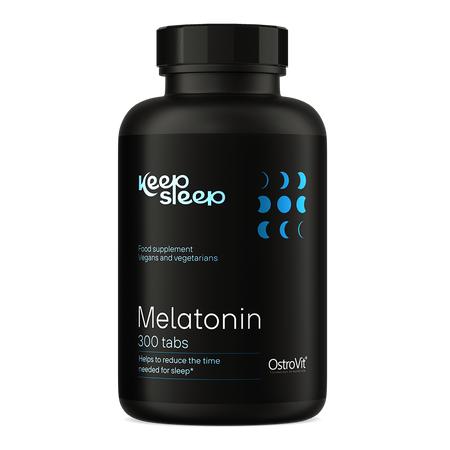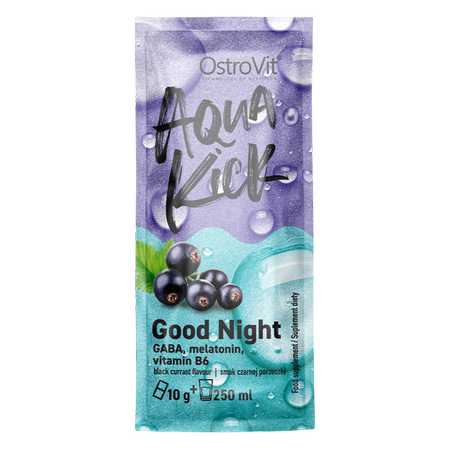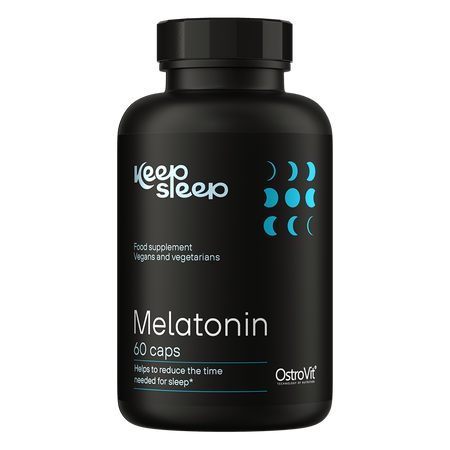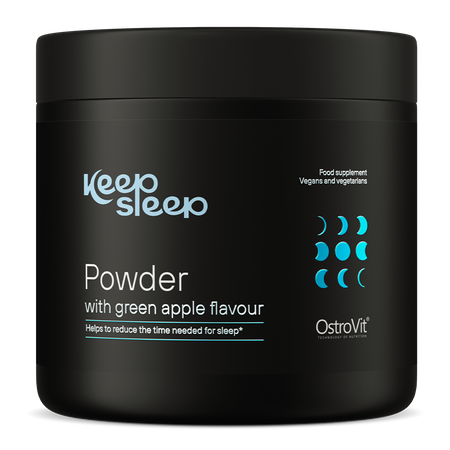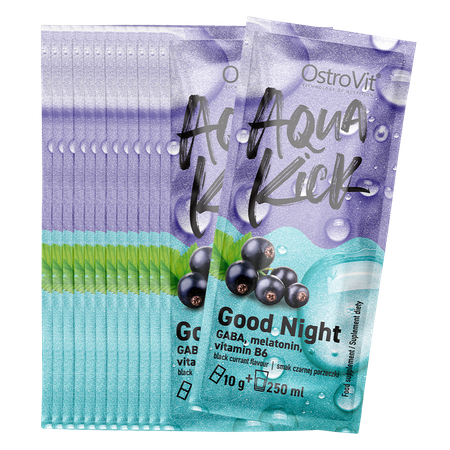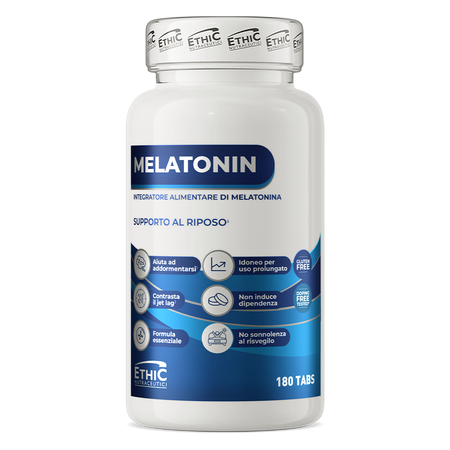Melatonin
Melatonin, called the hormone of darkness, is produced naturally in the human body after dark. It is used primarily in the regulation of the daily cycle, although it has a slightly wider range of activities. Its deficiency causes, i.a. sleep rhythm disorders and concentration problems. Therefore, it is worth taking care of the appropriate level of the hormone in the body.
Melatonin - what is it?
Melatonin is a hormone that occurs naturally in the human body and is a derivative of tryptophan. It is produced in the central nervous system by the pineal gland - one of the endocrine glands, located in the brain.
The natural secretion of melatonin in the body is regulated by light and darkness. The release of melatonin begins around 9 p.m., and the highest concentration of the hormone reaches between 2 and 4 a.m. Its production gradually slows down around 7-9 am.
Sleeping under lighting worsens the quality of sleep and reduces melatonin synthesis.
During the day, about 30 ug of the hormone is produced in the body. The level of melatonin decreases with age (from about 40 years of age its concentration gradually decreases), which is why circadian cycle disorders are a common phenomenon among the elderly.
Melatonin is essential for maintaining a normal sleep-wake rhythm. However, it also performs other functions in the body, and its action can be considered multidirectional.
How does melatonin work?
Melatonin is called the sleep hormone because, as we mentioned earlier, it is responsible for regulating the circadian rhythm of sleep and wakefulness and cares for the proper course of the circadian cycle. Thus, it plays an important role in regulating sleep hours during the day. It is used for symptoms of insomnia, including chronic and associated with aging processes.
Melatonin may also help stabilize body temperature regulation and lower blood pressure.
In addition, as an antioxidant, it has antioxidant effects. The hormone effectively supports the fight against free radicals, reduces oxidative stress, and what's more, it can contribute to the increase in the activity of the most important antioxidant enzymes, such as superoxide dismutase or catalase.
The sleep hormone in a small amount is also produced in the digestive system, where it can slow down digestive processes and stimulate the pancreas to secrete enzymes. In addition, melatonin can counteract excessive secretion of gastric juice and participate in modulating gastrointestinal peristalsis.
Melatonin deficiency
Symptoms of melatonin deficiency include:
- difficulty falling asleep at night,
- problems with concentration,
- fatigue,
- irritability,
- distraction,
- deterioration of well-being,
- problem with morning wake-up.
How to naturally supplement melatonin deficiencies?
To take care of the body and the proper rhythm of sleep and wakefulness, it is worth paying attention to behaviors that will naturally help us supplement melatonin deficiencies.
Therefore, a good solution is to go to bed at a fixed time. It is worth ensuring that uninterrupted sleep lasts 7-8 hours, because this is how much the body needs for regeneration.
In the last meal eaten before bedtime, it is worth including easily digestible products. It is good when they are a source of tryptophan, which is involved in the production of serotonin and melatonin. These hormones affect the feeling of relaxation and support the regulation of the circadian cycle. Such products include m.in pumpkin seeds, cheese, fish or milk.
It is also worth taking care of daily physical activity, especially outdoors.
Excess melatonin
Melatonin in too large amounts can contribute to the occurrence of undesirable symptoms, such as:
- nausea,
- deterioration of well-being,
- headaches,
- sleepiness,
- nightmares.
Excess melatonin can be caused by too little exposure to light, poor diet, as well as long-term, incorrect supplementation.
Melatonin in the form of a dietary supplement - for whom?
Melatonin in the form of a supplement is recommended especially for people who suffer from sleep disorders - they have problems falling asleep, and in the morning they complain of problems with waking up.
In addition, preparations containing the sleep hormone are recommended among the elderly, in whom the natural production of melatonin gradually decreases, as well as among blind people, in whom the daily cycle may also be disturbed.
Dietary supplements with melatonin will also work well among travelers who are struggling with changing time zones (jet lag) or among people performing shift work.
Correct use of melatonin-rich supplements
The appropriate portion of dietary supplements containing melatonin depends on age, body weight and the concentration of the active substance in the preparation.
In disorders of the circadian rhythm of sleep and wakefulness, doses from 1 to 5 mg per day are most often used. Among blind patients as well as sighted people, preparations rich in melatonin are recommended to be taken after dark, preferably one hour before bedtime.
In sleep disorders associated with the change of time zones, a portion of 1-3 mg of melatonin is recommended. The supplement should be taken once a day, in the evening, for about three days.
The hormone can be used for a long time, because it does not cause addiction. For this reason, taking melatonin can be considered safe.
Contraindications and side effects of melatonin use
Preparations containing melatonin should not be used in case of hypersensitivity to the active substance or any of the components of the product. You should also not take the hormone after drinking alcohol.
It is not advisable to combine melatonin with certain sedatives and antidepressants, such as thioridazine or imipramine. It is also not recommended to drive after taking a dietary supplement.
Caution should be exercised when taking melatonin by patients with hepatic impairment, depression or hormonal disorders.
With short-term use, side effects are very rare. These include symptoms such as headaches, disorientation or lowering body temperature.


 Bestseller
Bestseller